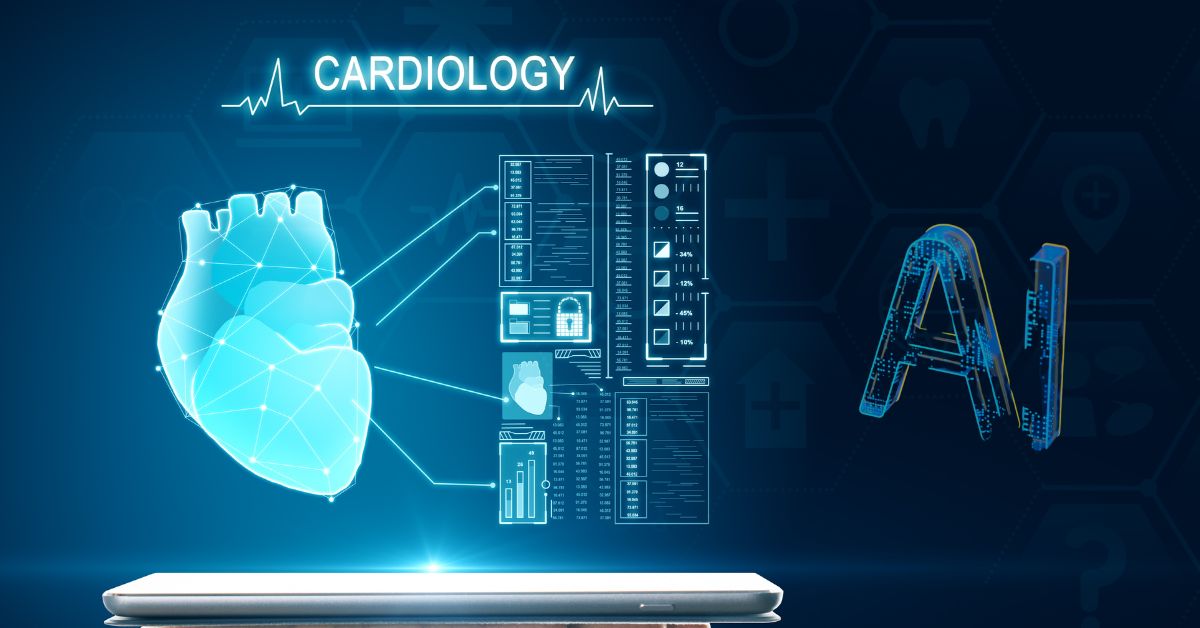Artificial Intelligence (AI) and machine learning (ML) have ushered in a new era of transformation in cardiology, revolutionizing patient care and enhancing outcomes. These technologies leverage vast amounts of data and advanced algorithms to improve various aspects of cardiovascular health management. Here are some key areas where AI and ML have made significant impacts:
Risk Prediction
Artificial Intelligence models have become invaluable tools in predicting the risk of cardiovascular disease (CVD). By analyzing comprehensive patient data—including medical history, lifestyle choices, and genetic markers—AI can assess individual risk levels with remarkable accuracy. For instance, machine learning algorithms applied to electrocardiograms (ECGs) can detect subtle patterns and anomalies that may indicate a heightened risk of future cardiac events. This predictive capability allows for early intervention and tailored preventive measures, potentially reducing the incidence of CVD.
Cardiovascular Imaging
AI has revolutionized the interpretation of cardiovascular imaging, with Convolutional Neural Networks (CNNs) leading the charge. These advanced algorithms enhance the accuracy and efficiency of analyzing cardiac MRI, CT scans, and echocardiograms. Key improvements include:
- Automated Image Segmentation: AI can automatically delineate anatomical structures and abnormalities, saving time and reducing human error.
- Quality Control: Algorithms can assess image quality and highlight areas that need retaking or further analysis.
- Motion Analysis: AI enhances the analysis of moving images, such as those captured during stress tests, providing more detailed insights into heart function.
These advancements streamline the diagnostic process and improve the reliability of imaging results, facilitating better patient outcomes.
Electrophysiology
In the realm of electrophysiology, AI plays a crucial role in detecting arrhythmias and predicting dangerous heart rhythms. Wearable devices equipped with AI algorithms continuously monitor patients, capturing real-time data on heart activity. When these devices detect abnormal rhythms, they promptly alert healthcare providers, enabling immediate intervention. This continuous monitoring capability is especially beneficial for patients with a history of arrhythmias, as it allows for proactive management and reduces the risk of sudden cardiac events.
Heart Failure Management
Heart failure is a complex condition that requires meticulous management. Machine learning algorithms have proven to be powerful tools in this area, analyzing patient data to predict exacerbations and optimize treatment strategies. By identifying patterns and trends in patient data, these algorithms can suggest personalized care plans and medication adjustments, helping to prevent hospital readmissions and improve overall patient outcomes. AI-driven tools also enable healthcare providers to monitor patients remotely, ensuring timely interventions when necessary.
Interventional Cardiology
AI has also made significant strides in interventional cardiology, particularly in guiding catheter-based procedures such as angioplasty and stent placement. These procedures require precision and accuracy, and AI enhances these aspects in several ways:
- Navigation Optimization: AI algorithms assist in navigating catheters through complex vascular structures, reducing the risk of complications.
- Radiation Exposure Reduction: By optimizing the procedure steps, AI helps minimize the amount of radiation exposure for both patients and healthcare providers.
- Enhanced Precision: AI provides real-time feedback and adjustments during interventions, improving the overall success rates of procedures.
The integration of AI and machine learning into cardiology holds immense promise for the future of cardiovascular care. These technologies enable more accurate diagnoses, personalized treatment plans, and proactive management of heart conditions. As AI continues to evolve, its applications in cardiology are likely to expand, leading to further improvements in patient care and outcomes. Embracing these advancements will be key to tackling the ongoing challenges in cardiovascular health and achieving better health outcomes for patients worldwide.






